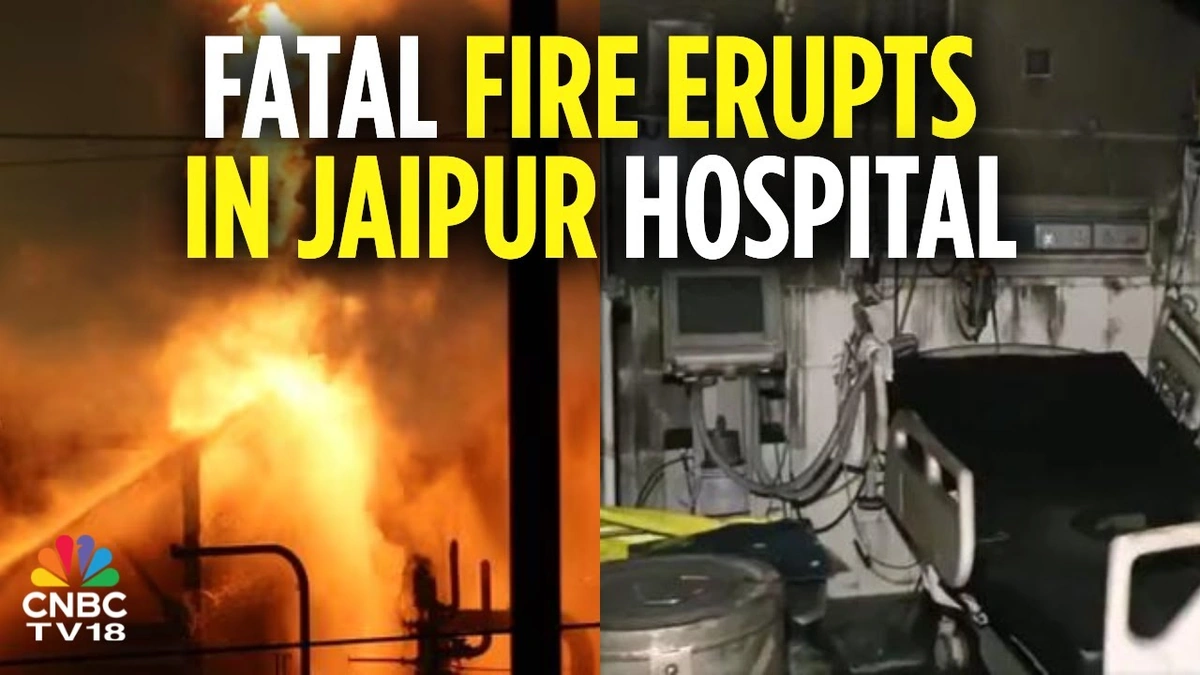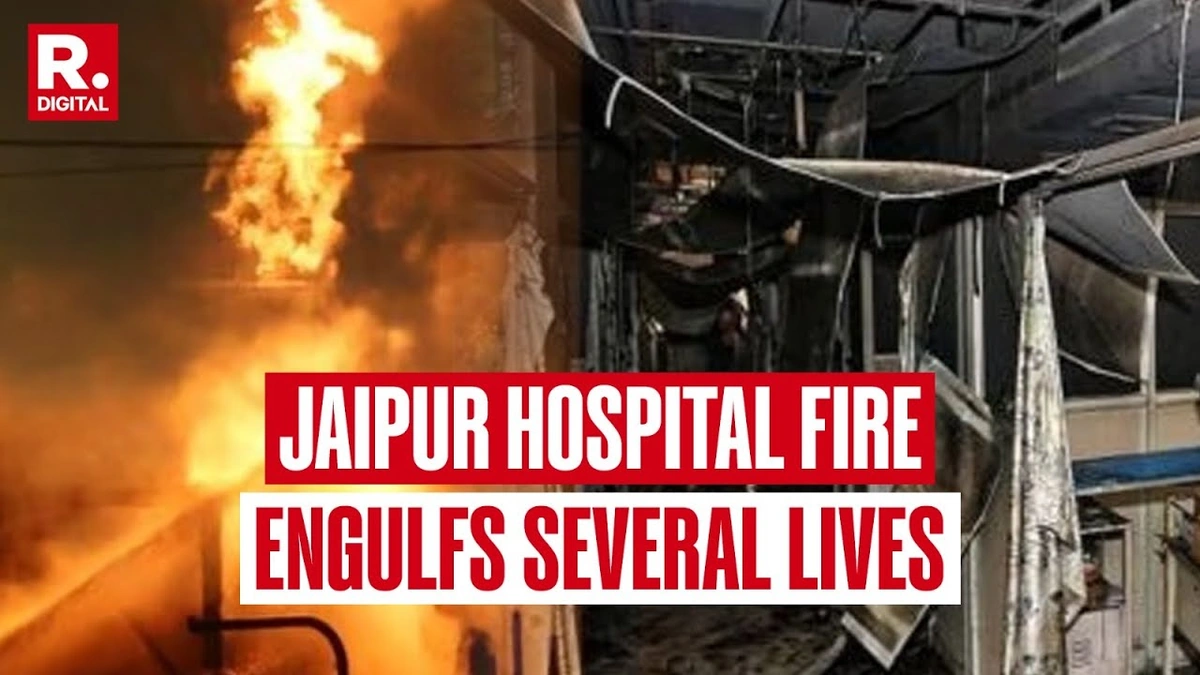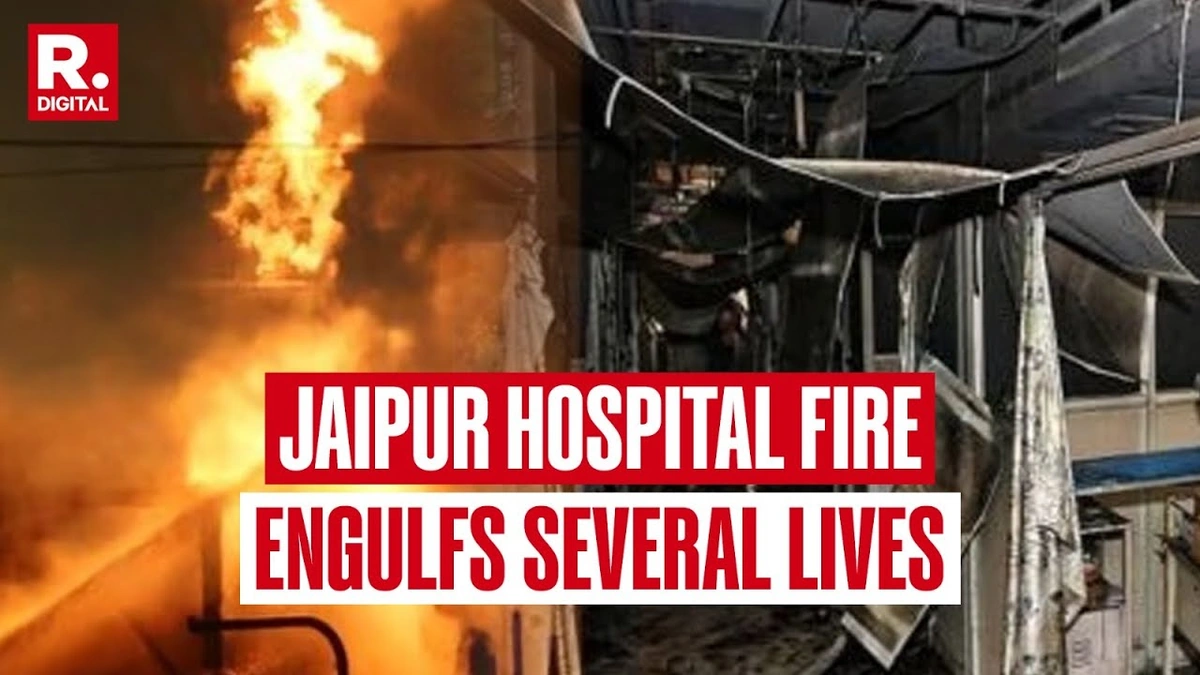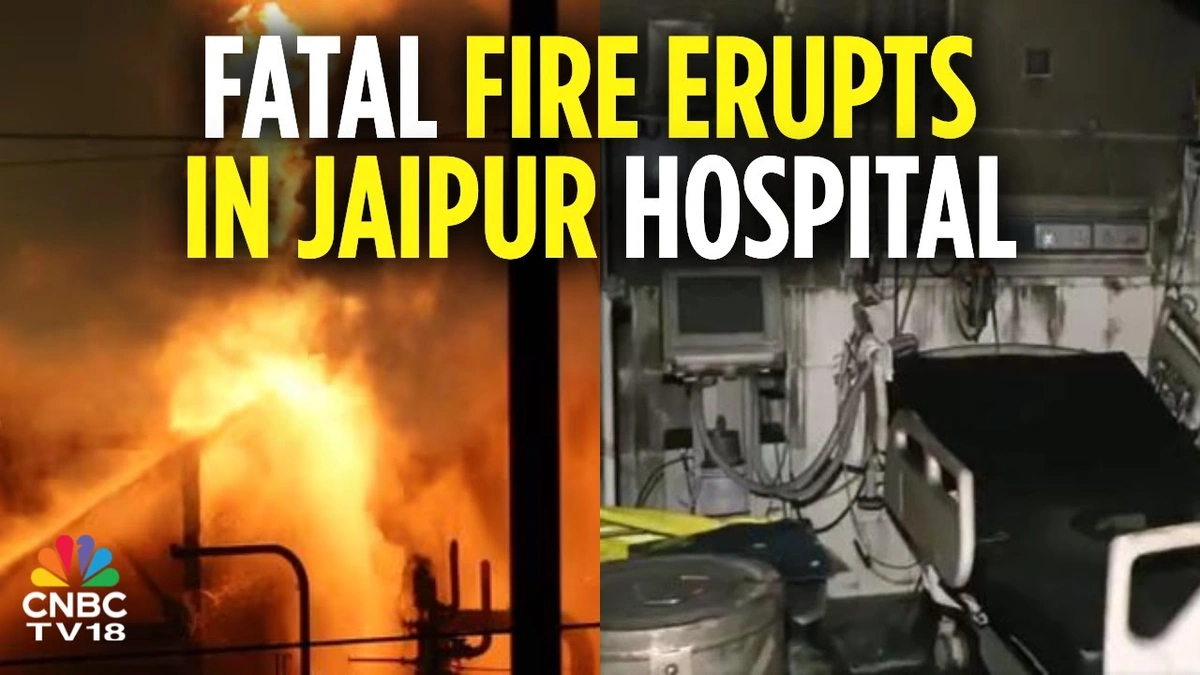Priyanka Gandhi Demands Compensation, Investigation After Jaipur Hospital Fire
The news is flashing everywhere: a devastating fire at a Jaipur hospital. But, honestly, just reporting that isn’t enough, is it? We need to dig deeper. What happens now? What does this mean for patients, for families, for the future of healthcare safety in India? And, perhaps most importantly, what’s the why behind this tragedy? Let’s unpack it. This isn’t just about a headline; it’s about lives, accountability, and preventing future disasters.
The Immediate Aftermath | A Cry for Justice
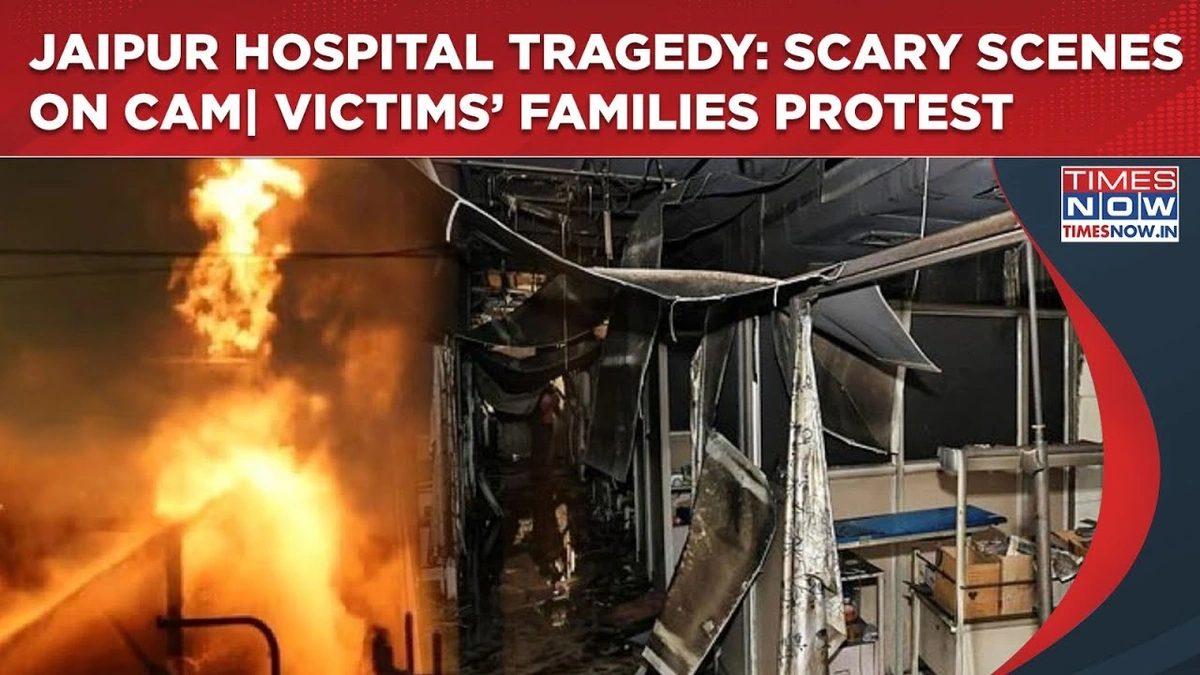
Priyanka Gandhi’s demand for compensation and a thorough investigation isn’t just a political statement; it’s a reflection of the public’s outrage. When something like the Jaipur hospital fire happens, the first instinct is to seek answers. Who is responsible? How could this have been prevented? And what will be done to ensure it never happens again?
Here’s the thing: Compensation is crucial, not just as financial relief, but as an acknowledgment of wrongdoing. It’s a signal that the lives lost and the suffering endured are recognized and valued. And an investigation? Absolutely vital. We need to understand the root causes – were there safety violations? Negligence? Systemic failures? Without a transparent and impartial investigation, justice can’t be served.
Unpacking the ‘Why’ | Systemic Issues and Negligence
But let’s go beyond the immediate demands. What fascinates me is the underlying ‘why’. Hospital fires, sadly, aren’t uncommon in India. And that points to a deeper problem: a potential lack of stringent safety regulations, inadequate enforcement, and perhaps even a culture of cutting corners. The hospital fire incident raises several concerns.
Are fire safety audits conducted regularly and thoroughly? Are staff adequately trained to handle fire emergencies? Are the buildings themselves up to code, with proper fire suppression systems? These aren’t just technicalities; they’re life-saving measures. And when they fail, the consequences can be catastrophic.
It’s easy to blame a single incident on bad luck, but more often than not, it’s a symptom of a larger systemic issue. Maybe government oversight is lacking, or perhaps hospital administrations are prioritizing profits over patient safety. Whatever the reason, it’s time for a serious reckoning.
To address this, we could look to international standards. Countries with robust healthcare systems have stringent fire safety protocols.These include everything from fire-resistant building materials to mandatory evacuation drills. Perhaps India can learn from these examples and implement similar measures.
The Human Cost | Stories Behind the Headlines
Let’s be honest, it’s easy to get lost in the policy debates and the political maneuvering. But behind every headline, there are real people – patients, families, doctors, nurses – whose lives are forever changed. The Jaipur tragedy is a stark reminder of that. We must never forget the human cost of such disasters.
Imagine being a patient in that hospital, vulnerable and dependent on others for your care. Imagine the terror of waking up to the smell of smoke and the chaos of a fire. Or, worse, imagine being a family member, anxiously waiting for news, unsure of your loved one’s fate. These are the stories that often get lost in the shuffle, but they’re the ones that truly matter.
And it’s not just the immediate victims. The doctors and nurses who worked tirelessly to save lives, the firefighters who risked their own safety – they too bear the emotional scars of this tragedy. Providing mental health support for them is crucial in the days and weeks ahead.
Moving Forward | Prevention and Accountability
So, what now? How do we prevent future hospital tragedies in Jaipur and elsewhere? It starts with accountability. Those responsible for the fire – whether through negligence, incompetence, or deliberate wrongdoing – must be held accountable. This isn’t about revenge; it’s about sending a clear message that safety standards are not optional.
And then there’s prevention. A comprehensive review of fire safety regulations is needed, along with stricter enforcement and regular audits. Hospitals should be required to invest in fire suppression systems, train their staff in emergency procedures, and conduct regular evacuation drills. This could be costly, but it’s a small price to pay compared to the cost of human lives.
Furthermore, transparency is key. The findings of the investigation should be made public, so that everyone can learn from the mistakes that were made. And there should be ongoing dialogue between the government, hospital administrators, and the public to ensure that safety standards are continuously improved. We need to remember this tragic incident and learn from it.
What fascinates me about the Jaipur incident is that it’s a microcosm of larger issues facing India’s healthcare system. From inadequate funding to a lack of regulation, many challenges need to be addressed. This fire should serve as a wake-up call, prompting a national conversation about patient safety and healthcare quality. Also, we need to address the issue of fire safety compliance in hospitals.
The Role of Public Awareness and Vigilance
Ultimately, preventing future tragedies requires a collective effort. The government, hospital administrators, and the public all have a role to play. But perhaps the most important factor is public awareness and vigilance. We need to be informed about our rights as patients, and we need to hold hospitals accountable for providing safe and quality care.
If you see something, say something. If you notice fire hazards or safety violations in a hospital, don’t hesitate to report them. Your voice can make a difference. Because, let’s be honest, waiting for the next disaster to happen is not an option.
Hospital safety is not just the responsibility of healthcare professionals. It’s a shared responsibility that requires the active participation of every citizen. The aftermath of the fire needs to be handled correctly.
The Jaipur hospital fire is a tragedy that should never have happened. But it’s also an opportunity to learn, to grow, and to build a safer and more resilient healthcare system for all Indians. Let’s not waste it.
FAQ | Understanding Your Rights and Resources After the Jaipur Hospital Fire
Frequently Asked Questions
What kind of compensation is Priyanka Gandhi demanding, and who is eligible?
Priyanka Gandhi has called for ‘adequate’ compensation. The exact amount and eligibility criteria will likely be determined by the government investigation. Typically, compensation covers medical expenses, loss of income, and, in cases of death, support for the victim’s family.
What if my loved one was affected by the fire? Where can I get support?
The government will likely set up a helpline and support center. Contact your local authorities and social services for immediate assistance. Many NGOs also offer counseling and support for victims of disasters.
How can I report a safety violation at a hospital in Jaipur?
Contact the local fire department and the state health department immediately. Document the violation with photos or videos, if possible. You can also file a complaint with the National Human Rights Commission.
What are some common fire safety hazards to watch out for in hospitals?
Blocked fire exits, malfunctioning fire alarms, overloaded electrical sockets, and a lack of clearly marked evacuation routes are all red flags. Also, ensure that staff are trained in basic fire safety procedures.
Will there be an independent investigation, or will it be conducted by the hospital itself?
Priyanka Gandhi’s demand is for an independent investigation, meaning it should be conducted by a neutral body, not by the hospital administration. This is crucial for ensuring transparency and impartiality. Independent investigation is very important.
What steps can I take to ensure my own safety when visiting a hospital?
Familiarize yourself with the location of fire exits and emergency stairwells. Pay attention to safety briefings. And if you have any concerns, don’t hesitate to speak up. Also, keep an eye on the impact of hospital fires.
This is not just about compensation or investigations. It’s about creating a culture of safety and accountability in our healthcare system. It’s about ensuring that every patient in India can receive care without fearing for their life. That’s the real demand that needs to be heard.
